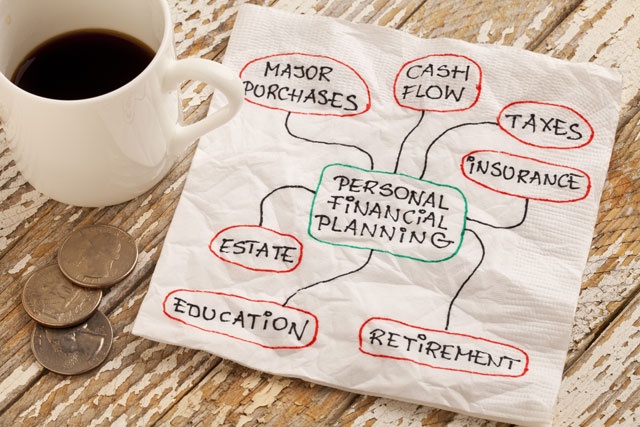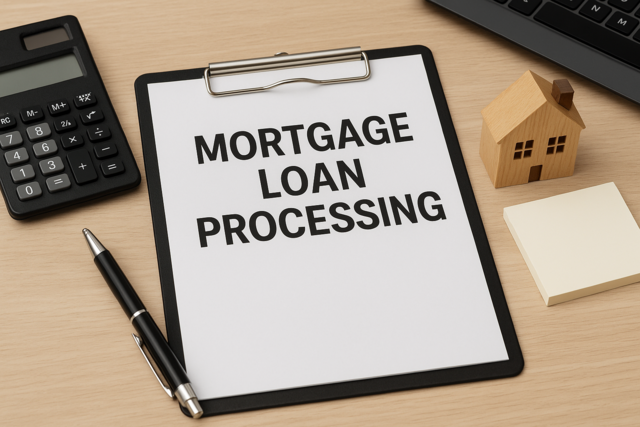After working for what seems like forever, we all look forward to that magical goal in our life. RETIREMENT.
However, this begs the question, "What exactly IS retirement?" For many folks, this means that you no longer have to get up to that early morning alarm clock, no long and annoying commute, you do not answer to a boss any more, in other words, you are FREE! Right?
Far too many people have only a vague idea of what retirement is, and therefore simply wait for it to happen and make no plans for it. This is a recipe for disaster.
Did you know that in 1910, the average life expectancy was 50 years and that the average age for retirement was 74 years? That means most retirees were dead for 25 years BEFORE they could retire. By 1940, life expectancy increased to 61 and retirement dropped to 70�still a deficit. By 1970, life expectancy was up to 67 and retirement age dropped again to 65. Ok, now we are talking. Two whole years of not working! In 2007, men could expect to live until 77 and women (you healthy darlings) could look forward to 81! The average age of retirement, again is between 62 and 65.
This idea of retirement, therefore, is a relatively new one. It has only really been around for a few generations. Small wonder most folks do not know how to plan for it.
What you need to keep in mind is that planning for retirement DOES mean you have to plan for your financial future, and most people are aware of this fact. Make sure that your retirement plans and pension plans are being watched carefully, that you know what to do in terms of rolling over money to avoid huge tax burdens. You all know how to make a budget, see how much it costs you to live today, and make sure that you will have that much money coming in monthly when you retire.
For the most successful retirement experience, you absolutely MUST consider a holistic retirement plan, considering all aspects of retirement, not just the monetary aspect. The statistics do not lie. You can expect to live for quite some time in retirement. Consider the following possibilities.
- What will you do with yourself? Are you the type of person whose identity is defined by your work? If so, who will you be when you retire?
- Do you know your wife or husband? Your family? Have you spent all your time working to provide for your family, but now do not know who they are? It is time to change this.
- Friendship is critical, keeping old friends and learning how to make new friends. For many of us, the art of making friends ended in the elementary school playground.
- Some of you might want to continue working, but NOT in your former job.
- You might have a passion you have never been able to pursue before.
- Perhaps you have not finished a degree in something, or you want another degree. More and more retirees are attending college and completing upper level degrees.
- Some people have dedicated themselves to raising a family, and now want the opportunity to go out and start a business, make a contribution to society, somehow make a difference in our world.
Retirement can be the most exciting part of your life, one where YOU define what you will do and who you are. However, if you do not plan for this, years could be wasted while you wait for retirement to happen to you. Who are you? What do you REALLY want to be when you grow up? Where do you want to live? What have not you done yet and MUST do before you leave this world? Start now by taking good care of your health, both physical and mental. Forge new relationships and friendships, and certainly take care of the ones you already have. Retirement should be the most GOLDEN period of your life!
Where You Are Today
Regardless of your age, planning for retirement can start today. It is time to consider you financial situation, your age, how long you have been working, how long you plan to continue working, what pensions, IRA's or other retirement vehicles you have established, and what your dreams of retirement are.
To create a reasonable retirement plan it is vital that these questions are considered and answered. If you are 55 and have put nothing toward retirement and yet you plan to live out your Golden Years traveling and golfing, you could be in for a bit of a surprise. Retirement does not automatically hand you a life of luxury on a platter.
What You Have
By listing all your assets and their approximate value, you can get a good idea of what you are worth. Everyone should do this exercise annually. Be sure to include your house, jewelry, precious metals, guns, stocks, bonds, mutual funds, pension plans, 401k's, IRA's, and so forth.
Start a list and add to it every year. Add to it every time you remember one more thing that you did not list previously. It is vital to have a true accounting of what you are worth, and keep this on hand, review it from time to time.
Fill out the Net Worth Worksheet on the following page. You do not have to have every number yet, but it is essential for your future that you get started today.
Prepare for the exercise by pulling together information on everything that you own, and its worth. Put all your documentation in one place, a very safe place. There is no need to keep all your financial information scattered about.
Once you have listed all your assets you will have an approximate idea of your possessions.
Then you will have to list all your debts and liabilities, and deduct this value from your assets.
Net Worth. The higher this number, the better your financial plans will go.
Net Worth Calculation Worksheet
Assets (What You Own)
Cash.
Cash On Hand _____________________
Checking Account _____________________
Savings Accounts _____________________
Money Market Funds _____________________
Cash Value of Life Insurance ________________
Other _____________________
Real Estate or Property.
Home _____________________
Land _____________________
Other _____________________
Investments. (Market Value)
Certificates of Deposit _____________________
Stocks _____________________
Bonds _____________________
Mutual Funds _____________________
Annuities _____________________
IRAs _____________________
401(k),403(b), 457 Plans __________________
Pension Plan _____________________
Other _____________________
Personal Property. (Present Value)
Automobiles _____________________
Recreational Vehicle/Boat __________________
Home Furnishings _____________________
Appliances and Furniture ___________________
Collections _____________________
Jewelry and Furs _____________________
Other _____________________
Total Assets _____________________
Liabilities (What You Owe)
Current Debts.
Household _____________________
Medical _____________________
Credit Cards _____________________
Department Store Card_____________________
Back Taxes _____________________
Legal _____________________
Other _____________________
Mortgages.
Home _____________________
Land _____________________
Other _____________________
Loans.
Bank or Finance Company ___________________
Bank or Finance Company____________________
Automobile _____________________
Recreational Vehicle or Boat __________________
Education _____________________
Life Insurance _____________________
Personal (from family or friends) _____________
Other _____________________
Total Liabilities _____________________
Total Assets _______________________
minus Total Liabilities _____________________
Total Assets Minus Total Liabilities = Net Worth __________________________
What You Need:
This exercise will take you through your monthly income and expenses. Many of these expenses will continue at the same rate after retirement, so it will give you a very good idea of just how much money you are going to need on a monthly basis in order to maintain your standard of living.
By taking into account everything you currently pay for, you will get a much better idea of just how much money you are going to need during retirement. In fact, once you have completed the worksheet on the following page, you will likely want to create one for your retirement, and eliminate any expenses you believe that you will be unlikely to have after you retire.
This will only give you an IDEA of what you might need financially to retire comfortably. We will continue to explore numerous avenues of income and expenses that you will face once you retire.
Each individual is unique, and his or her financial situation is unique. While the advice of a financial advisor is helpful, it is not always necessary to seek this until you have completed this class.
It is up to you to educate yourself about your future. An advisor can give you just that, advice. You are the one who will be walking the path that you have prepared. To do this well, you are the only one who can educate yourself completely about what your needs will be.
Preparing for retirement is as essential as preparing for anything else in life that you deem to be important. Let us take action now. You have an idea of your net worth. Now let us take the next step and evaluate monthly expenses to see just how much income you will need on a monthly basis.
Once we have these numbers, it will be easier to plan for our future.
There will be expenses that will change during retirement, and naturally, inflation will play a significant role in your income/expenses ratio during inflation. Let us not worry too much about those numbers right now. We will deal with those issues in more detail later in the class.
For now, it is important to determine your Net Worth and what your estimated monthly expenses are by establishing your monthly budget or monthly spending plan.
A Monthly Spending Plan
MONTHLY GROSS INCOME MONTHLY SAVINGS FOR GOALS
Salary & Earned Income $ __________ Emergency Funds $ __________
Child Support & Alimony $ __________ Savings Account $ __________
Pension & Social Security $ __________ Retirement Funds $ __________
Rental Income $ __________ College Funds $ __________
Other _____________________ $ __________ Vacation Fund $ __________
Other _______________ $
LIABILITIES Other _______________ $ __________
Mortgage or Rent $ __________ Other _______________ $ __________
Residence Real Estate Taxes $ __________ Other _______________ $
Vacation Home Mortgage $ __________
Vacation Home taxes $ __________ MONTHLY CHARITY CONTRIBUTIONS
Automobile Loan(s) $ __________ Tithes & Offerings $ __________
Personal Loans/Charge Accts $ __________ Charitable $ __________
Child Support & Alimony $ __________
Other ___________________ $ __________ HOUSEHOLD EXPENSES
Food $ __________
TAXES Clothing $ __________
Federal Income Taxes $ __________ Doctor & Dentist $ __________
State & Intangible Taxes $ __________ Prescription Drugs $ __________
Taxes $ ___________ Health Club $__________
Other _____________________ $ __________ Professional Fees $ __________
Education Expenses $ __________
FICA & MEDICARE WITHHOLDING Entertainment $ __________
You $ __________ Personal Care, Haircuts, etc. $__________
Spouse $ __________ Dining Out $ ____________
Utilities: Electricity, Gas, Fuel $ __________
CHARITABLE DONATIONS Telephone: Cell and Other $ __________
Church $ ____________ Water & Water Conditioners $ __________
Other $ ____________ Garbage and Pest Control $ __________
Home Maintenance & Repair $ __________
INSURANCE Pool Maintenance & Repair $ __________
Life Insurance $ __________ Bank Fees $ __________
Health Insurance $ __________ Accounting $ _________
Disability Income Insurance $ __________ Legal $ __________
Auto Insurance $ __________ Security Systems $ __________
Home Owners Insurance $ __________ Home Furnishings $ __________
Other $ __________ Recreation, Hobbies $ __________
Veterinarian & Pet Care $ __________
TRANSPORTATION Books, Magazines $ __________
Gas and Oil $ __________ Club Dues $ __________
Maintenance and Repair $ __________ Vacation and Travel $ __________
License, Registration $ __________ Association Fees $ __________
Public Transportation $ __________ Gifts $ __________
Other _________________ $ __________ Other _________________ $
Add all Income. Add all expenses.
Subtract expenses from income to determine Net Income.
If this is positive, you have a balanced budget.
If this is negative you will need to eliminate or reduce some of your expenses.
Is Your Plan Reasonable
Now that you have taken the time to evaluate your net worth and your monthly budget, it is time to evaluate where you are and where you need to be in order to retire.
Given that you have a Net Worth number, this tells you approximately how much money you have available to you. Some of this money is tied up in assets, likely your house being your primary asset. All assets are worth something, and for the purposes of determining the reasonableness of your plan, all we need to know is their worth.
Next, you have estimated a monthly budget.
By looking at your Net Worth and your monthly budget, do you see how close to the number you are?
If you have adequate assets and resources, you are likely more prepared for retirement than you previously thought.





























